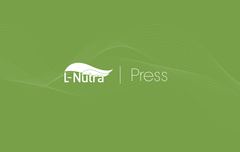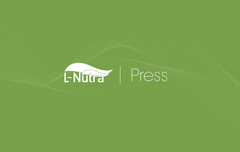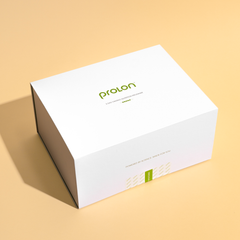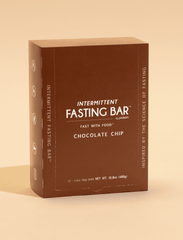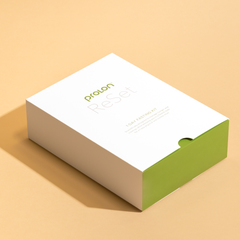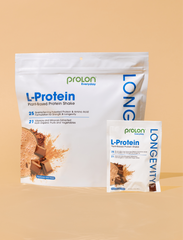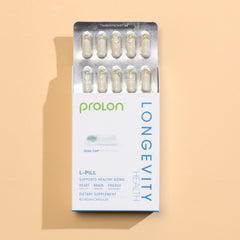
Types of Fasting: The Ultimate Guide
Do you want to experience the benefits of fasting but don’t quite know where to start? Simply put, the first step will be deciding which type of fast you’d like to follow.
Whether you’re fasting to support metabolic health or encourage weight loss, there’s a program for everyone. Read on to learn more about popular types of fasting with Prolon.
What Is Fasting?
Fasting is a practice that involves limiting or abstaining from food for a period of time and has been a large part of many religions and cultures for centuries.
In Jainism, fasting is said to help a person reach a transcendent state. Some Buddhists also use fasting to aid in their meditation practices. Christians may also fast to seek wisdom.
However, though fasting has religious origins, many people choose to fast simply for the health benefits.
Some of the health benefits attributed to fasting can include:
- Support for healthy blood sugar levels
- Energy maintenance
- Support for cognitive health
- Bolstering weight loss efforts
- Support for cardiovascular health
The health benefits of fasting aren’t new — we’ve known about them for thousands of years. In fact, the earliest documented instance of medical fasting is from around 600 BCE, when Hippocrates recommended it to some of his patients.
As science has evolved, so has our understanding of fasting. Now, we know more about the benefits of fasting and have developed many types of fasting.
There are also many different types of fasting. For instance, there is intermittent fasting, water fasting, fasting-mimicking diets (FMDs), and prolonged water fasts.
What Are the Main Types of Intermittent Fasting?
One of the most popular types of fasting is intermittent fasting (IF). This essentially involves following an eating pattern in which you have a fasting window and an eating window. While there are a few different types of intermittent fasting, an intermittent fast would be any type of food restriction within aunder 48 hour spans. Let’s review the different types of IF.
Time-Restricted Eating
Also called time-restricted feeding, this fasting method can look a few different ways.
Time-restricted eating can include:
- 12:12: During this fast, you’ll fast for 12 hours a day and eat during 12. We recommend this method diet, known as within the Longevity Diet, for health and weight maintenance if you are already at your goal weight.
- 14:10 Fast: During this fast, you’ll fast for 14 hours a day and eat during 10. This is typically followed temporarily as a means for weight loss.
- 16:8 Fast: During this fast, you’ll fast for 16 hours a day and eat during eight. Be cautious if deciding to follow this modality. It is not intended to be followed for long periods of time. Once you achieve your weight goals, return to a 12:12 eating pattern.
- 14:10 Fast: During this fast, you’ll fast for 14 hours a day and eat during 10.
- 23:1 Fast: During this fast, you’ll fast for 23 hours a day and eat during one. This method is also called the one-meal-a-day (OMAD) diet.
For any of these fasting diets, you can choose when you start your fasting period and when you begin your eating period. Although research shows that the best health outcomes are seen when you eat earlier in the day, and finish eating earlier in the evening, too. Those who “back load” their eating late at night might experience negative health outcomes.
5:2 Diet
This diet operates on the same principles as time-restricted eating but on a largerbigger scale. With this diet, you’ll eat normally for five days of the week and fast for the remaining two.
The fasting days are when this diet can get a little tricky. Some people do full water fasts during these two days, while others practice calorie restriction. For the latter, people may eat as few as 500 calories.
Prolon’s 1-Day Reset was formulated with diets like 5:2 in mind. If you’re choosing to opt out of water fasting, this made-for-you box is the perfect complement to keep your body in a fasted state while still consuming specific amounts of nutrientscalories.
Alternate-Day Fasting
For alternate-day fasting, you’ll fast for one day and eat normally the next day, following this eating pattern for as long as you’d like. During your 24-hour fast window, you might completely fast all calories or simply lower your calorie intake.
What Is Prolonged Water Fasting?
Water fasting is a type of fasting in which you take in no calories at all. You can only drink water, and typically, no food is allowed. You also can’t drink coffee, tea, or lemon water — while these drinks are normally allowed during periods of fasting for intermittent fasting, research suggests that they maythey will break a water fast by spiking a nutrient sensing pathway called PKA.
Water fasting often lasts anywhere from 24 to 72 hours. The length of time you fast is up to you, but it’s important to note that autophagy (the cellular rejuvenation that brings many of the benefits of fasting) does not acceleratebegin until after three days of fasting. Because of this, many people choose to practice prolonged water fasting, which goes beyond 72 hours.
What Are the Benefits of Prolonged Water Fasting?
As mentioned, oOne of the main benefits of prolonged water fasting is that it can encourage autophagy. This is the process by which the body identifies old cell parts needing replacing or recycling and repairs them to be more efficient and effectiveclears the way for new, more efficient ones. The benefits of autophagy maycan help people feel more energized and rejuvenated.
Prolonged water fasting may also support healthy blood pressure, encourage proper insulin sensitivity, and support healthy cholesterol levels.
Are There Side Effects to Prolonged Water Fasting?
All of these benefits may sound good, but there are some side effects that can come with prolonged water fasting.
One of the most significant side effects of prolonged water fasting is the that it can cause you to loss ofe muscle mass. Because you’re avoiding caloric intake for an extended period, your body may start to break down your muscles for energy. Even though you may be losing body weight, some of this weight is muscle — which we want to preserve.
Prolonged water fasting can also cause dehydration, since much of our electrolyteday-to-day water intake comes from our diet. Without ample electrolytes, our body’s cells won’t be able to pull water in properly, leaving us dehydrated. You’ll need to significantly increase your water intake to avoid dehydration, which might be hard for some people. This dehydration can also stem from the fact that because water fasting does not include any food or nutrients, you’re missing out on key electrolytes that help your body stay properly hydrated.
Fasting-Mimicking Diet (FMD): Reaping the Benefits of Prolonged Fasting While Still Consuming Nutrients
With all of this in mind, if you want to experience the benefits of water fasting while minimizing side effects like muscle loss, consider the F a fasting M-mimicking Ddiet (FMD). The FMD provides the perfect ratio of nutrients to keeps your living below your nutrient-sensing pathways, (or the radars that signal to your body food is present) turned off., without having to participate in a water-only prolonged fast.
Prolon’s 5-Day Program provides specific nutrients in specific amounts to help supply your body with proper nutrients and mineralsyou stay hydrated and maintain your muscle mass while still encouraging autophagy and ketosis. As leaders in the FMD, L-Nutra, makers of Prolon,Prolon is committed to educating fasting enthusiasts and newcomers alike about the benefits of autophagy and how to achieve it without a full-blown water fast.
What Are Some Tips for a Successful Fast?
While the benefits of fasting are worth the effort, no fast is easy. Completing a fast require physical and mental preparationoften comes down to your mindset and how you prepare.
Here are some tips to help you have a successful fast:
- Focus on your end goals. What’s your “why”? Allow this to drive you.You can even try meditating on them to help inspire motivation.
- Make sure you stay properly hydrated.
- Focus on how you feel. If you start to feel symptoms of dehydration or other health concerns, you might want to stop your fast. Always consult a healthcare practitioner if you suspect any more serious issues.
- Choose a program like Prolon that supports your body’s needs throughout your fast.
- On non-fasting days, make sure you focus on nutrition and post-fast support. You can even work with a Ddietitian to personalize your eating plan..
Is Fasting Right for Me?
Fasting is generally safe for many people, and there’s no denying the benefits. If you’re trying to support your health, lose weight, or even rejuvenateclean out your system, fasting could be a good option.
If you’re currently managing a pre-existing health condition, you may want to talk to a healthcare provider before startingyou start a fast. Fasting is also not recommended for:
- Pregnant women
- Breastfeeding women
- Anyone who has a history of eating disorders.
The Takeaway
Fasting is a great way to support your health from the inside out, and there are many different types of fasting. From intermittent fasting to prolonged water fasting, each method has its own benefits, and can also come with some side effects. Be sure to educate yourself properly on which plan is right for you. Ultimately, deciding which fast best fits your needs is up to you.
Whichever fast you choose, it’s important to choose a program that’s based on science and designed to support your body throughout your fast. At Prolon, we’ve spent over 250 years researching the science of fasting and are leaders in longevity and healthy aging. We are confident in our products and hope you enjoy them too., so we know how it works and how to get results.
To find the Prolon program right for you, browse our products today.






